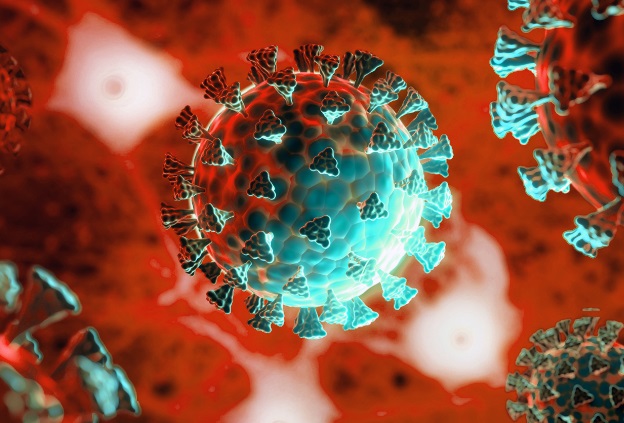Resurgence of SARS-CoV-2 BA.3.2 Variant Sparks Concern in South Africa and Beyond
Nikhil Prasad Fact checked by:Thailand Medical News Team Jul 04, 2025 7 months, 3 weeks, 1 day, 18 hours, 56 minutes ago
Thailand Medical News: A highly mutated subvariant of the SARS-CoV-2 Omicron lineage, BA.3.2, is raising alarm among health experts as it reemerges in South Africa and appears in isolated cases globally. First identified in South Africa between November 2024 and January 2025, this variant, characterized by 57 amino acid mutations in its spike protein, has shown signs of increased transmissibility, prompting renewed vigilance in a country that has played a pivotal role in tracking COVID-19 variants.
https://www.thelancet.com/journals/laninf/article/PIIS1473-3099%2825%2900308-1/fulltext
 Resurgence of SARS-CoV-2 BA.3.2 Variant Sparks Concern in South Africa and Beyond
Resurgence of SARS-CoV-2 BA.3.2 Variant Sparks Concern in South Africa and Beyond
South Africa’s robust genomic surveillance, led by institutions like the National Institute for Communicable Diseases (NICD) and the Network for Genomic Surveillance in South Africa (NGS-SA), has detected BA.3.2 in four provinces—Gauteng, Western Cape, KwaZulu-Natal, and North West—since early 2025.
The BA.3.2 variant is also rapidly spawning new sub-lineages including the recent BA.3.2.2 sub-lineage with spike mutations K356T and A575S.
Thailand Medical News would like to point out that recent data indicates that 40% of SARS-CoV-2 sequences collected in South Africa since April 1, and 50% since May 1, belong to BA.3.2, suggesting a strong foothold, however this extensive BA.3.2 spread in South Africa was never disclosed by any international health agencies such as the WHO or by the local NCID.
The lack of sequencing data from five other provinces—Northern Cape, Eastern Cape, Free State, Limpopo, and Mpumalanga—raises concerns that the variant may be more widespread than reported. Health Minister Aaron Motsoaledi has emphasized that while South Africa’s surveillance systems remain effective, limited testing nationwide could obscure the variant’s true reach.
Globally, BA.3.2 has been detected in the Netherlands, with a sample collected on April 2, 2025, marking its first appearance outside South Africa. Recently it has also been detected in Germany and the United States.
Experts warn that low global surveillance may be masking the variant’s spread, particularly in neighboring African countries where sequencing is minimal.
Virologists have highlighted South Africa’s role as a sentinel for global SARS-CoV-2 trends, noting that the variant’s mutations could enhance its ability to bind to human cells, potentially making it more infectious than earlier Omicron subvariants like BA.1 and BA.2.
Despite its spread, there has been no data linking BA.3.2 to a significant increase in severe illness or hospitalizations in South Africa, where influenza and RSV currently dominate respiratory infections.
>https://www.nicd.ac.za/diseases-a-z-index/disease-index-covid-19/surveillance-reports/weekly-respiratory-pathogens-surveillance-report-week/
Some experts are concerned however that officials there could be concealing critical data and figures.
The NICD claims that SARS-CoV-2 accounts for only 3.3% of tested samples, compared to 10.7% for influenza and 16.3% for RSV.
Health officials urge the public to maintain precautions, including hand hygiene and masking in high-risk settings. As South Africa and the world grapple with this reemergence, experts stress the need for enhanced global surveillance and vaccine updates to stay ahead of BA.3.2’s potential to drive new waves of infection.
For the latest on the BA.3.2 variant, keep on logging to
Thailand Medical News.
Read Also:
https://www.thailandmedical.news/news/sars-cov-2-ba-3-variant-returns-in-south-africa-but-this-time-with-more-than-57-new-mutations
https://www.thailandmedical.news/news/covid-19-infections-silently-rising-in-malaysia-fast-with-positivity-rates-reaching-51-percent-now
https://www.thailandmedical.news/news/u-s-cdc-claims-covid-19-infections-are-not-rising-but-can-we-really-trust-the-numbers
